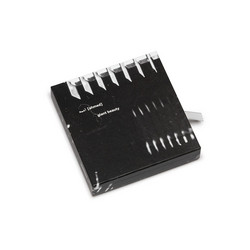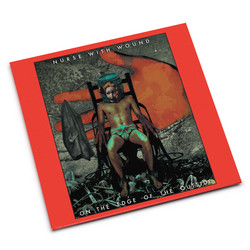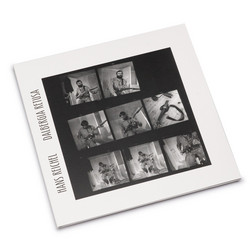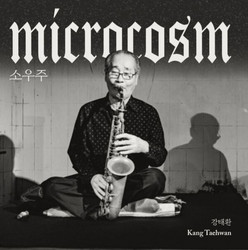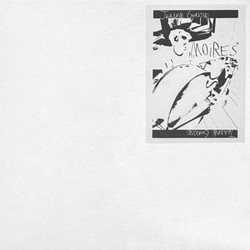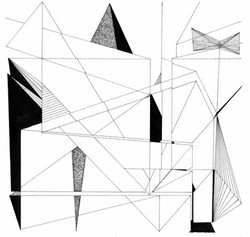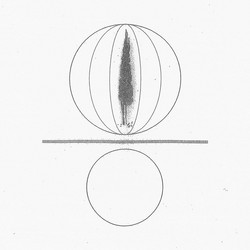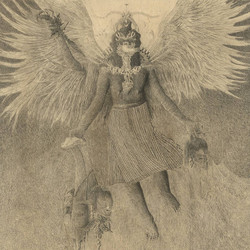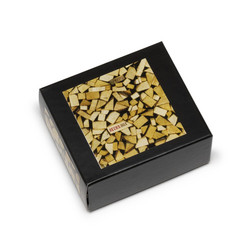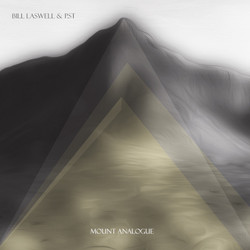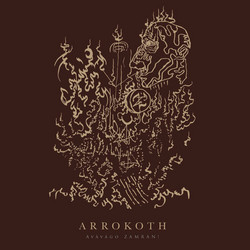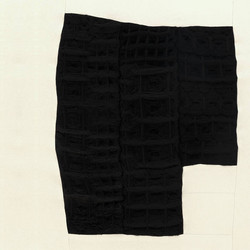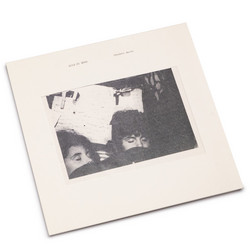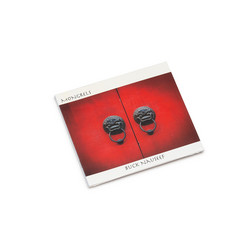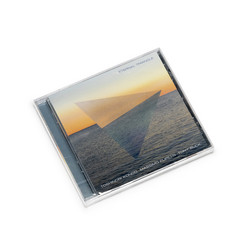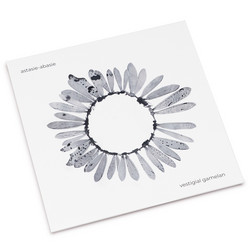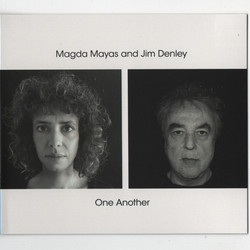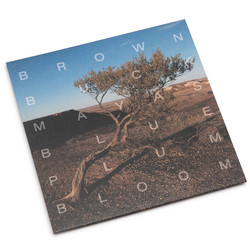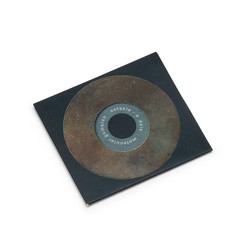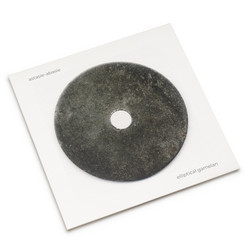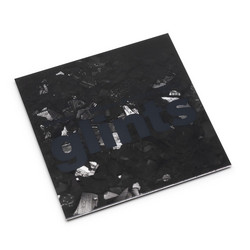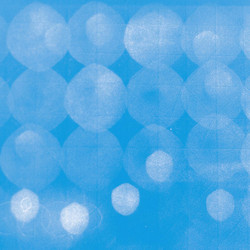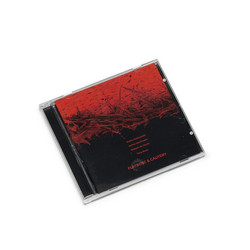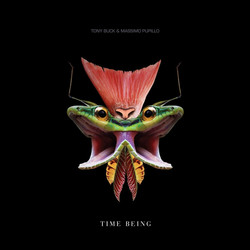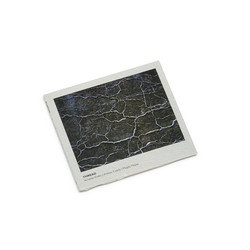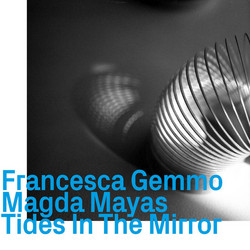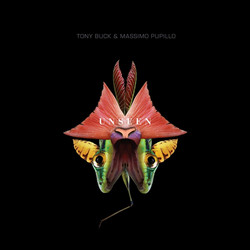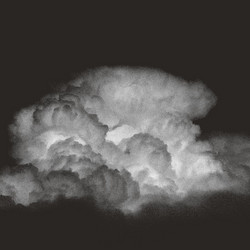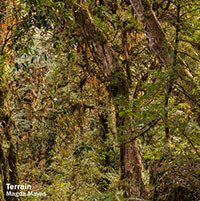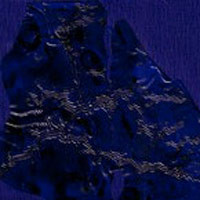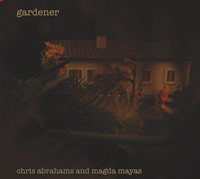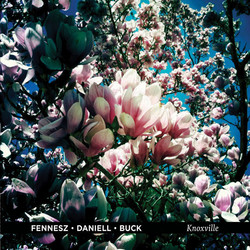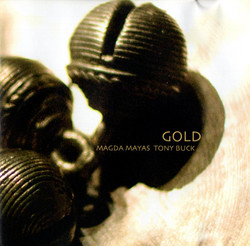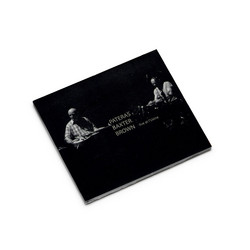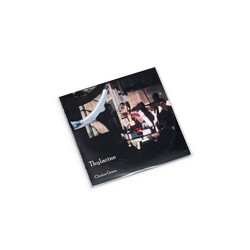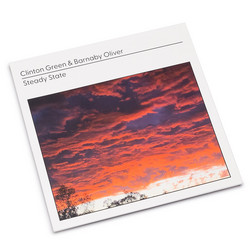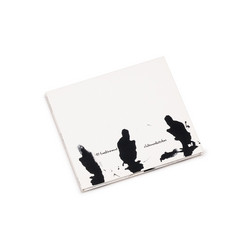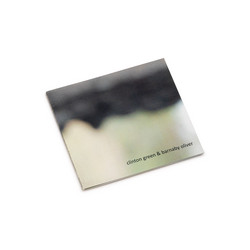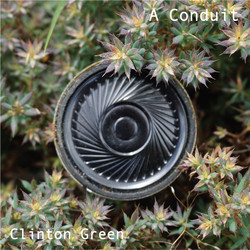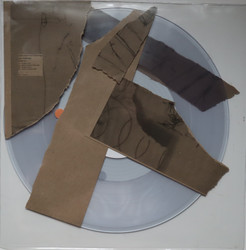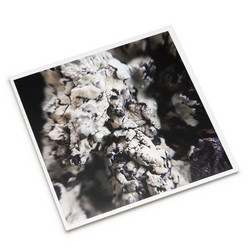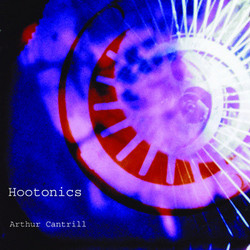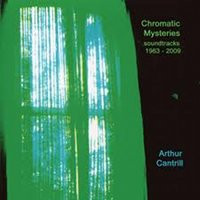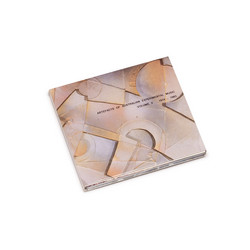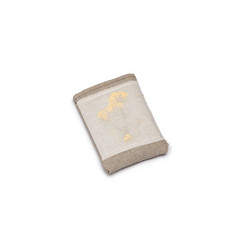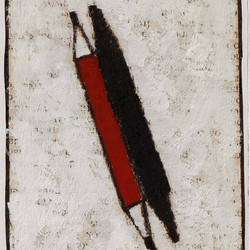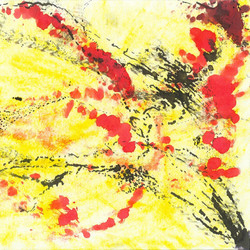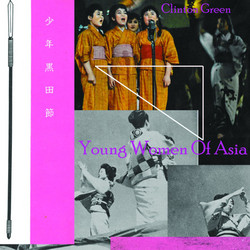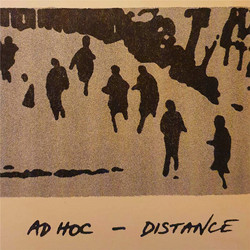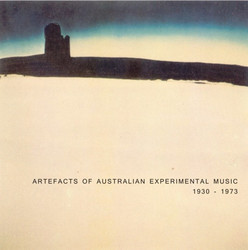Tony Buck, Magda Mayas, David Brown, Astasie-abasie
Vestigial Gamelan / Blue Plum Bloom (2LP Bundle)
Tip! For decades, Australia has been a hotbed for experimental music, producing countless singular artists and trajectories of exploration that have stretched out across the globe and shifted the sense of what is possible within the context. Initially founded during the 1990s, for more than 30 years the Victoria based imprint, Shame File Music, has occupied a crucial place in this story, producing more than a hundred releases dedicated to documenting both the contemporary and historical output of Australia’s thriving experimental music scene. Their latest batch of LPs, comprising “Vestigial Gamelan” - a remarkable body of compositions focused on the exploration of tiny and discreet sounds by Ian Andrews’ Astasie-abasie project - and “Blue Plum Bloom” by Brown/Buck/Mayas, the debut full-length from David Brown (prepared guitar, electronics), Tony Buck (drums, percussion) and Magda Mayas (piano, objects). Deeply connected through their approach to scale and texture, both are towering illuminations of the contemporary Australian scene, and are released in beautiful, highly limited editions: “Vestigial Gamelan” as 100 vinyl copies, with locked grooves at the end of each side, and “Blue Plum Bloom” as 150 copies on marbled royal blue and white vinyl, housed in full colour sleeve printed on reverse board, with postcard insert. Engrossing and absolutely fantastic, these are not to be missed.
Astasie-abasie "Vestigial Gamelan" LP
A protagonist of the Australian experimental music since the early 1980s, Ian Andrews has an expansive, multidisciplinary practice, exploring questions relating to utopia, modernism, technology, and the post-human, that stretches across film, video, sculpture, installation, collage, poetry, and writing. Based in Sydney, since first emerging within projects like The Horse He's Sick, Kurt Volentine, Cut With the Kitchen Knife, and numerous others, as well as the subsequent body of solo efforts that he has developed over the decades, Andrews pushed the realm of experimental audio collage and cultural meaning to remarkable lengths: “deconstruction and collage, and the critical juxtaposition of appropriated materials—to locate the point of fracture in discourses of power and discursive regimes, and put into question the organising structures, and break the syntax of the accepted sedimented frameworks that keep thought rigid and ultimately hold us to ransom.”
First emerging from a long running performance collaboration with Garry Bradbury, Andrews’ Astasie-abasie project moves more actively into the territory of incidental and live sound generation, focusing on the amplification of small sounds, produced by small objects, captured by contact microphones, home constructed cartridges, miniature piezo microphones and conventional microphones, while embracing an aleatory and close to automatic compositional process. Much like field recording, sounds are found rather than performed or manipulated, with very few editing after the fact. “Vestigial Gamelan”, Astasie-abasie’s latest full-length, is the third in the “Gamelan” series, following “Vestigial Gamelan” (2022) and “Molecular Gamelan” (2021), both also issued by Shame File Music.
Like its predecessors, “Vestigial Gamelan” comprises the outcomes of a series of experiments that explore the magnification of the insignificant sounds, brooding the realm first developed by artists like John Cage, Gordon Mumma and David Tudor. A bristling expanse of sonic tapestries, defined by a striking sense of texture and punctuating tonalities, often chaotic and repetitive patterns generated by the objects in Andrews’ toolkit were realised through a minimum of gestural action by way of a number of distancing strategies, such as the use of hand drills, film winders and motorised drills/screwdrivers, producing truly engrossing outcomes of pointillistic detail and surprising interactions.
Andrews states: “The most important thing is the music’s random nature, which I greatly enjoy. Think of wind chimes, rattling in the wind, but here, the chimes are broken and make a lot of different sounds, unlike the different tunings of a wind-chime. It all rattles about, and if you listen close, you can detect some organisation. It’s difficult to say how much of this is ‘played’ or the result of automated actions and how much editing is done. Astasie-abase opts for short pieces, all eleven around three minutes and within each of these, there is not only a lot happening, but there are also many variations throughout this record. Much of this happens on a mid-frequency range; some on a more low-end range, like they added a bass drum to the proceedings.”
Remarkably beautiful and intimate, producing something akin to a randomised Minimalism meeting machine music, Astasie-abasie third outing in the “Gamelan” series, “Vestigial Gamelan”, is absolutely fantastic from its first sounding to its last. Tiny sounds brought toward the monumental in both sonority and meaning. Issued by Shame File Music in a stunning, highly limited edition of 100 vinyl copies, with locked grooves at the end of each side, we can’t recommend diving into this singular sound would enough.
David Brown, Tony Buck, Magda Mayas "Blue Plum Bloom" LP
Something of a super group, Brown/Buck/Mayas is the improvising trio of David Brown (prepared guitar, electronics), Tony Buck (drums, percussion) and Magda Mayas (piano, objects). Effectively an expansion of Buck (The Necks) and Mayas' long-time Berlin-based duo, Spill, bringing onboard Melbourne-based Brown (Pateras/Baxter/Brown, Western Grey, Stone Echidna, Dumb & the Ugly, and countless other sonic explorations), “Blue Plum Bloom” is the debut LP of this truly stunning project, despite having been playing sporadically for roughly a decade.
The trio of Brown, Buck, and Mayas describe their music as “pointillistic interactions combined with contrasting timbral sonorities expanding the language developed by Spill into a new, more expansive whole; piano with objects and guitar and drums intertwined and subtlety shifting in focus, like a constantly shifting kaleidoscope of sound.”
Working like a single, multi-armed body, the collaboration of Brown, Buck, and Mayas is centred around the unique approaches developed by each artist to their instruments over the years, and the subsequent singular vocabularies that have spring from them. Over the course of the three compositions that comprise “Blue Plum Bloom” - the side-long “Polyamourous Sea”, the title track and “Forager” - it’s often difficult to distinguish where the interventions and action of one - particularly the case with Mayas’ prepared and inside / outside work on the piano and Brown’s timbral approach to the guitar, blending acoustic rings with electronic treatments - that collectively weave a tightly locked tapestry of textural patterns, played into Buck’s restrained polyrhythms and infused with hints of subtle tonality and dissonance.
A distant cousin of the slow boiling tension and drama for which Buck’s primary project, The Necks, has become famed, the improvisational explorations of Brown, Buck, and Mayas veers far off into truly forward-thinking realms of musicality, emphasising the monumentality of tiny and descent details and their interplay. Working so well as a whole that the personalities of each player seems subsumed by the outcome, and delivered within such a unique collective vocabulary that it often feels like there are no players at all, but rather a chance, auditory encounter with a deconstructing industrial landscape - clattering, scraping, pulsing, ringing, and resonating - “Blue Plum Bloom”, the trio’s debut LP, is one of those rare records that demands the listener meet it on its own terms, and enter an entirely different temporal and creative space.
Joining Shame File Music’s towering catalog of brilliant and groundbreaking recordings, “Blue Plum Bloom” is issued in a highly limited edition of a 150 copies on marbled royal blue and white vinyl, housed in a full colour sleeve printed on reverse board, with postcard insert. A stunning debut and a true marvel of improvisation and real-time music making, this one is as essential as they come.
